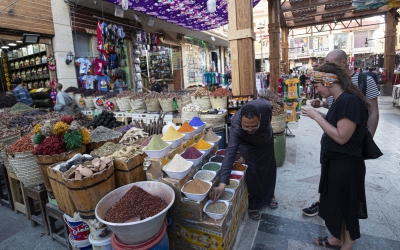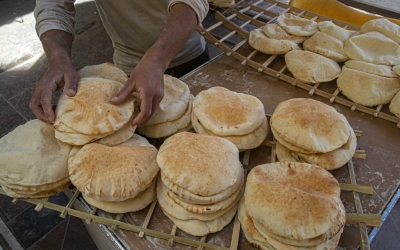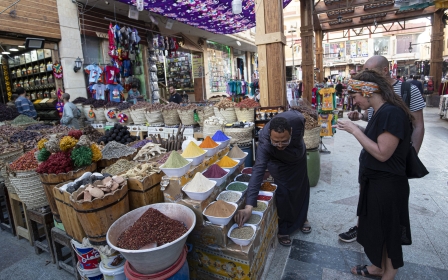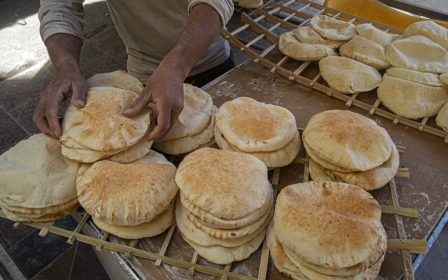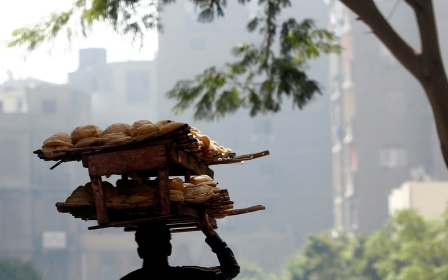Egypt's government 'most politically exposed' by rising inflation: Report

The government of Egyptian President Abdel Fattah el-Sisi may be the most under threat in Africa from rising inflation, a report published by Renaissance Capital, a London-based investment bank, argues.
Rising costs are increasing the risks of regime change in several African countries as higher prices make falls in per-head GDP more likely, said the bank's chief economist Charles Robertson, according to an article in the Africa Report.
In most emerging markets in 2022, falling GDP per head has little impact on political risk because most markets are wealthy and stable enough to withstand it, says the economist.
However, he argues, that does not apply in many parts of Africa.
While in richer countries, packaging, labour and transport costs represent a large part of the final food prices paid by consumers, in Africa, the raw material costs of food make up a higher share of the sale price.
Egypt is highly dependent on food imports, especially from Russia and Ukraine, from where almost 80 percent of the country's wheat imports came last year.
This means the country's economy has been seriously impacted by the situation in Ukraine.
Over recent weeks, commodity prices have risen dramatically, igniting public anger and pressuring authorities to take radical measures to keep a lid on prices.
Such measures included the Egyptian government forcing local wheat producers to sell a portion of their harvest to the government.
For the first time in years, the state intervened to dictate the price of bread produced by private bakeries for the tens of millions of Egyptians not registered in the national food rationing system.
A surge in prices of food
For political change, Robertson uses the "Polity Score" produced by the Center for Systemic Peace, the Africa Report writes.
The score ranks governments on a 21-point scale ranging from -10 (hereditary monarchy) to +10 (consolidated democracy).
The risk of a shift towards autocracy more than doubles to seven percent when inflation rises above 50 percent.
African countries with a one-in-four risk of regime change if per head GDP falls are Ethiopia, Tanzania, Sudan, Zimbabwe, Morocco, and Egypt, Robertson writes.
Egypt's annual urban inflation rate increased to 10.5 percent in March, the highest since June 2019.
Egypt's Central Agency for Public Mobilisation and Statistics (Capmas) attributed the latest rise to a surge in the prices of food, especially vegetables, bread, and grain.
Last month, Egypt's finance minister, Mohamed Maait, said wheat provision in the state's budget "will soar by around 15bn Egyptian pounds ($1bn)".
According to Robertson, if such a rise in rates leads to a fall in GDP per head, there is a one in four chance that Egypt's government will change.
This includes a one in 20 chance of a shift to full autocracy, and about a one in five chance of a shift towards democracy.
The rational course for a political leader who is happy with the political status quo is to do all he can to keep per head GDP in positive territory, Robertson wrote.
"This would not be a good time to remove bread subsidies," he added.
Middle East Eye delivers independent and unrivalled coverage and analysis of the Middle East, North Africa and beyond. To learn more about republishing this content and the associated fees, please fill out this form. More about MEE can be found here.


